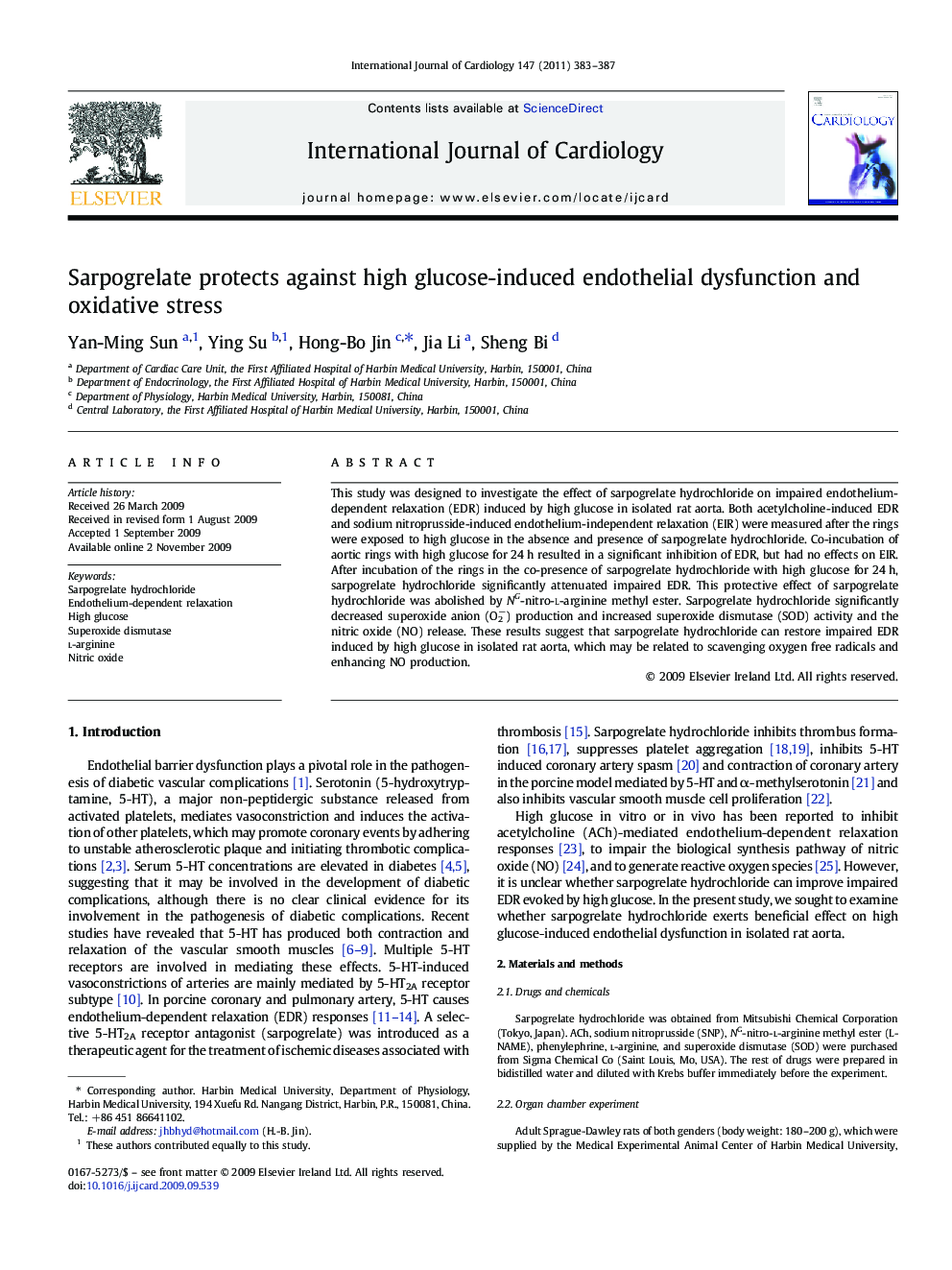| Article ID | Journal | Published Year | Pages | File Type |
|---|---|---|---|---|
| 2931352 | International Journal of Cardiology | 2011 | 5 Pages |
This study was designed to investigate the effect of sarpogrelate hydrochloride on impaired endothelium-dependent relaxation (EDR) induced by high glucose in isolated rat aorta. Both acetylcholine-induced EDR and sodium nitroprusside-induced endothelium-independent relaxation (EIR) were measured after the rings were exposed to high glucose in the absence and presence of sarpogrelate hydrochloride. Co-incubation of aortic rings with high glucose for 24 h resulted in a significant inhibition of EDR, but had no effects on EIR. After incubation of the rings in the co-presence of sarpogrelate hydrochloride with high glucose for 24 h, sarpogrelate hydrochloride significantly attenuated impaired EDR. This protective effect of sarpogrelate hydrochloride was abolished by NG-nitro-l-arginine methyl ester. Sarpogrelate hydrochloride significantly decreased superoxide anion (O2−) production and increased superoxide dismutase (SOD) activity and the nitric oxide (NO) release. These results suggest that sarpogrelate hydrochloride can restore impaired EDR induced by high glucose in isolated rat aorta, which may be related to scavenging oxygen free radicals and enhancing NO production.
